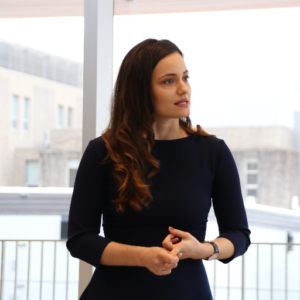
FIFSW Postdoc Talk: “The Evolution of State Fragility: Implications for Social Protection & Public Policy,” with Dr. Luissa Vahedi
November 17 @ 12:10 pm - 1:00 pm
Location: FIFSW Webinar Rm# 422
Register by November 13
All are welcome.
Attendees are encouraged to attend in person; however a zoom link will be made available for those who can only attend virtually. If you wish to receive a zoom link to the talk, please contact Vesna Bajic at vesna.bajic@utoronto.ca.
Join FIFSW for a talk by Postdoctoral fellow Dr. Luissa Vahedi, who will share the concept of state fragility in global health through a decolonial lens, combining critical theory with longitudinal analyses of global fragility metrics.

Dr. Louissa Vahedi
About the talk
Since the 1990s, international institutions have labeled many low- and middle-income countries as “fragile states.” These labels shape how we study global health and design interventions, yet they also carry hidden assumptions about who is capable of good governance and who is not.
Dr. Luissa Vahedi will challenge the neutrality of “fragility” as a concept. Drawing on the idea of damage-centered research, she will show how measurement and classification systems created by international organizations don’t just describe fragility, they help produce it. Dr. Vahedi will introduce a new, globally applicable model of fragility that reveals how governance weaknesses appear across all countries, not just those traditionally seen as fragile. Using longitudinal data, she will trace how fragility has evolved worldwide, uncovering surprising trends in high-income countries that force us to rethink what fragility means and where it resides.
Dr. Vahedi argues for a global health agenda built from the ground up, one that recognizes hidden vulnerabilities everywhere and reimagines fragility as a shared, systemic condition rather than a label reserved for the “other”.
About Dr. Luissa Vahedi
Dr. Luissa Vahedi is a social epidemiologist who specializes in the application and advancement of mixed-methods research to address global health disparities. Her scholarship addresses the socio-political causes and health consequences of social inequalities, violence, and child development disparities. Her current research interrogates the concept of state fragility in global health through a decolonial lens, combining critical theory with longitudinal analyses of global fragility metrics.